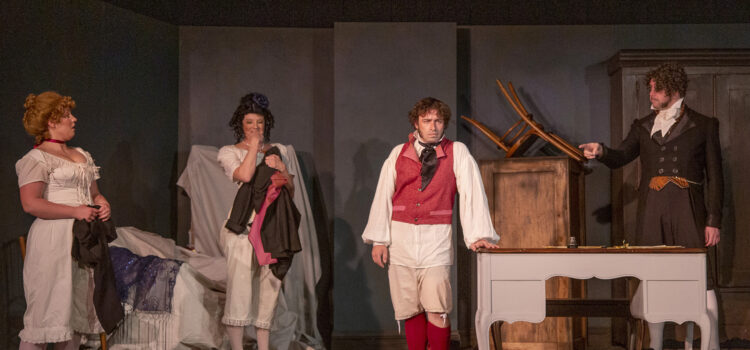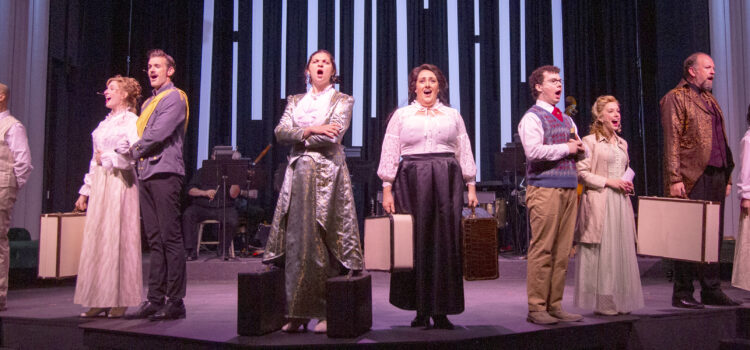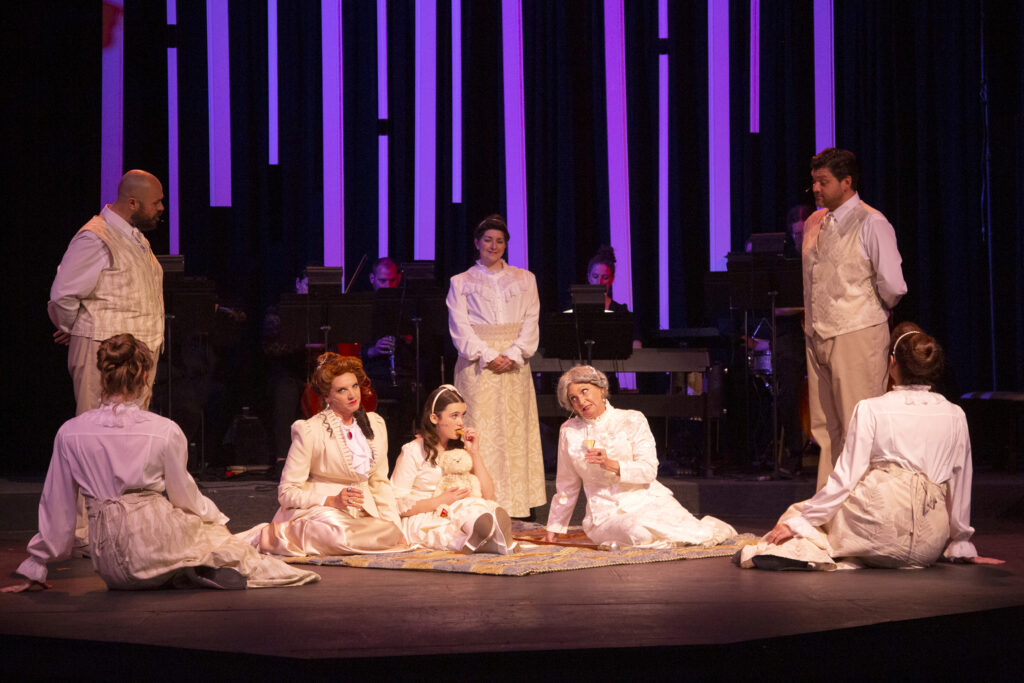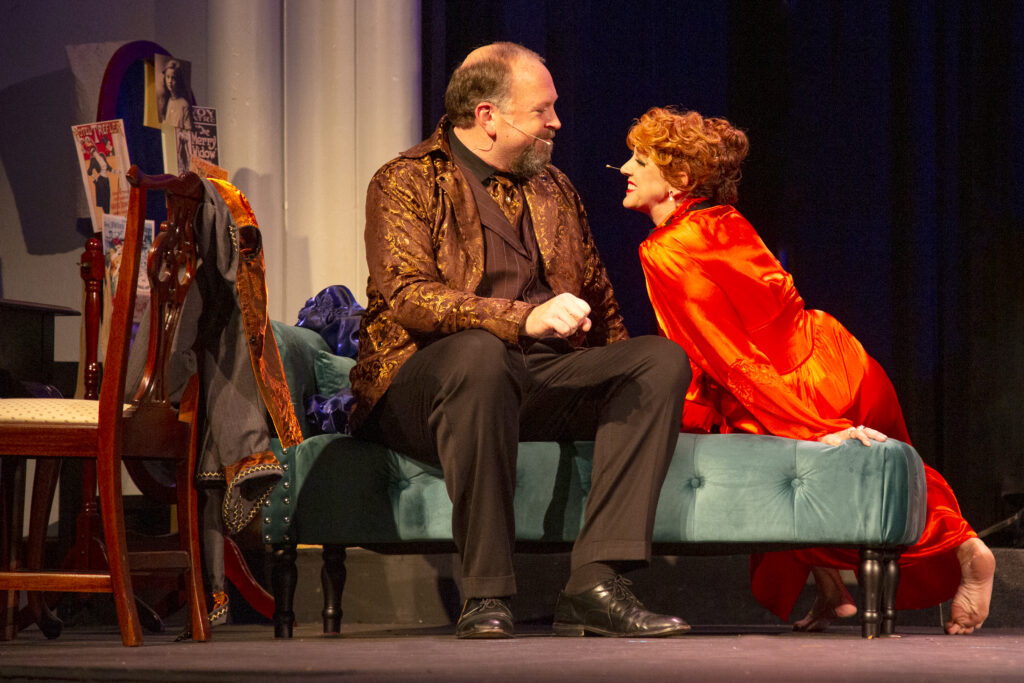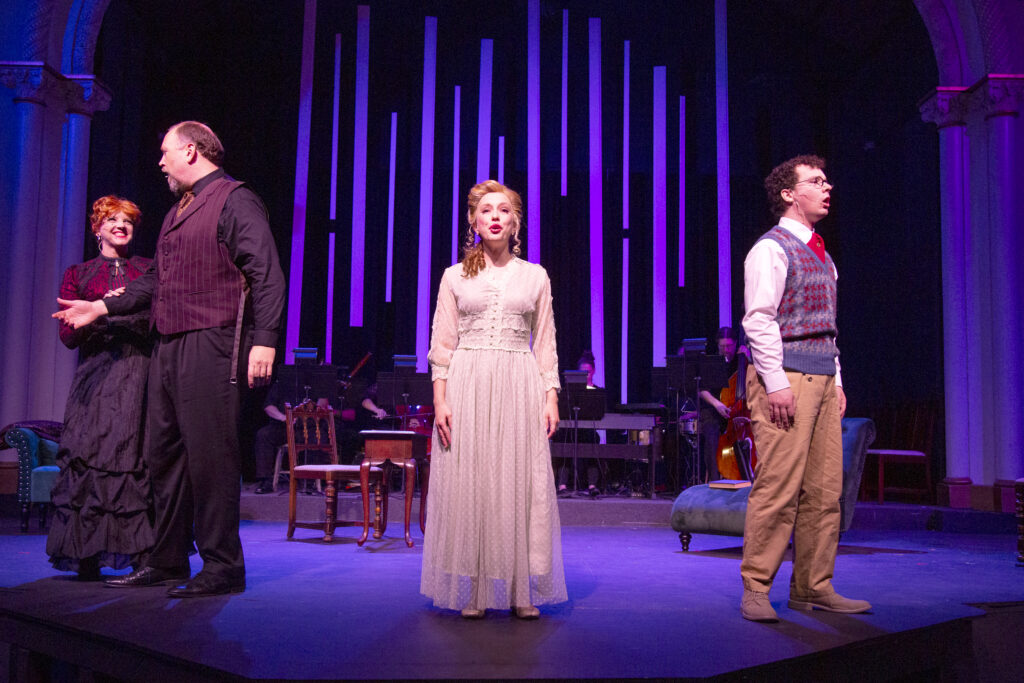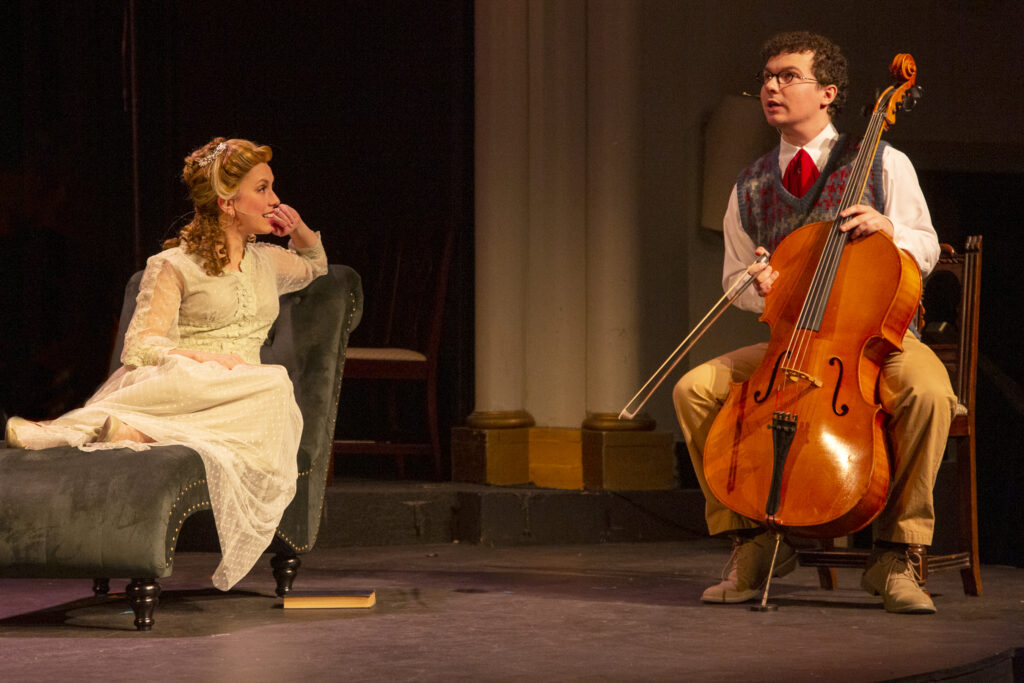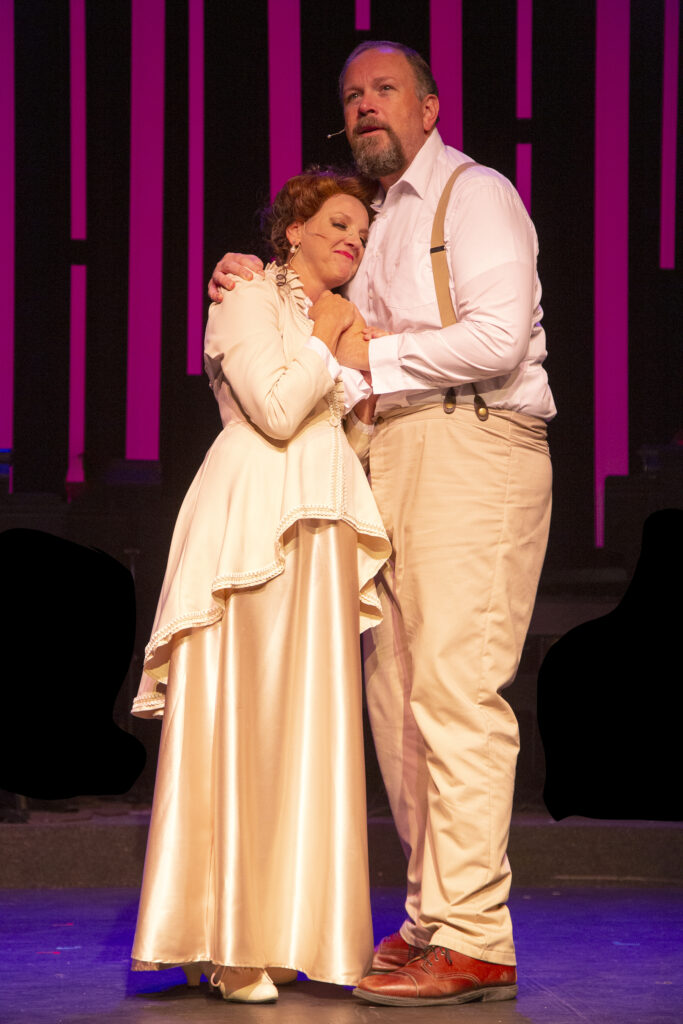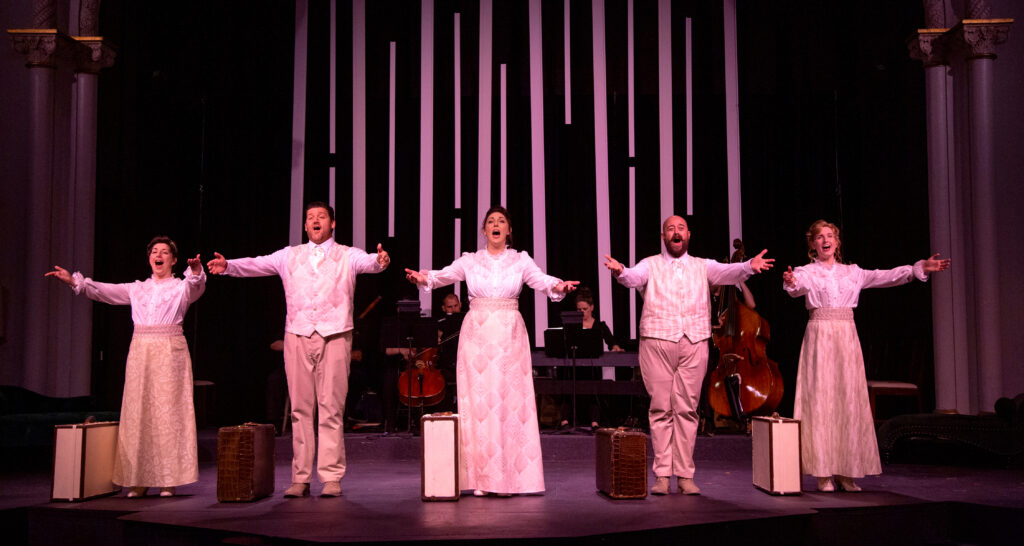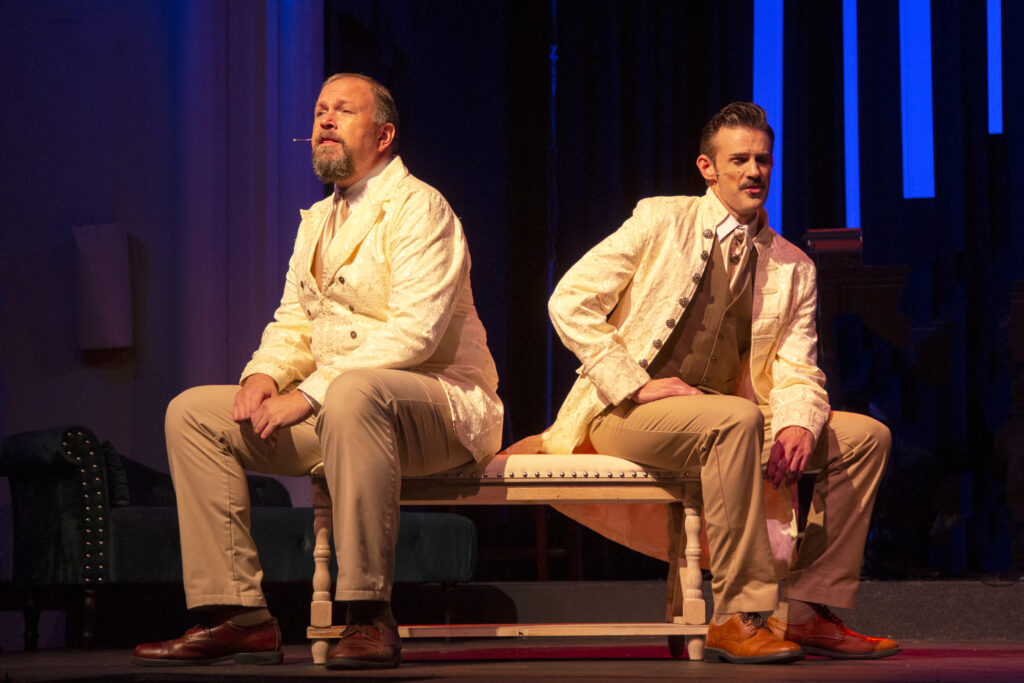By Lynn Venhaus
Inspired by real 19th century artists, “Finale” examines the creative process of renowned Italian composer Gioachino Rossini with a nimble cast of four and jaunty, skillful writing.
West End Players Guild has produced its final play of the 111th season, and this comedy-drama is well-suited for their intimate theater space.
It’s also a feather in their cap, a world premiere written by Vladimir Zelevinsky, who is a playwright at home in the Union Avenue Christian Church basement, for this is his fourth play to be presented there.
For his previous WEPG works, he received a welcome reception and critical praise that garnered St Louis Theater Circle nominations, with “Manifest Destiny” in 2016 and “The Great Seduction” in 2018. His world premiere of “The Cricket on the Hearth” happened in December 2019, all directed by Steve Callahan.
Zelevinsky is also a research scientist based in Massachusetts and was in St. Louis to attend the inaugural performances last weekend.
While the play is fiction, it’s based on historical figures, and he obviously put in a lot of research into the characters: roguish “Jack” Rossini (Tim McWhirter), talented diva Isabella Colbran, his lover and later wife (Paula Stoff Dean), wealthy and anxious impresario Domenico Barbaia (Matt Anderson) and a coquettish muse Angel (Sadie Harvey), a likely composite of lovers vying for the outgoing genius’ attention.
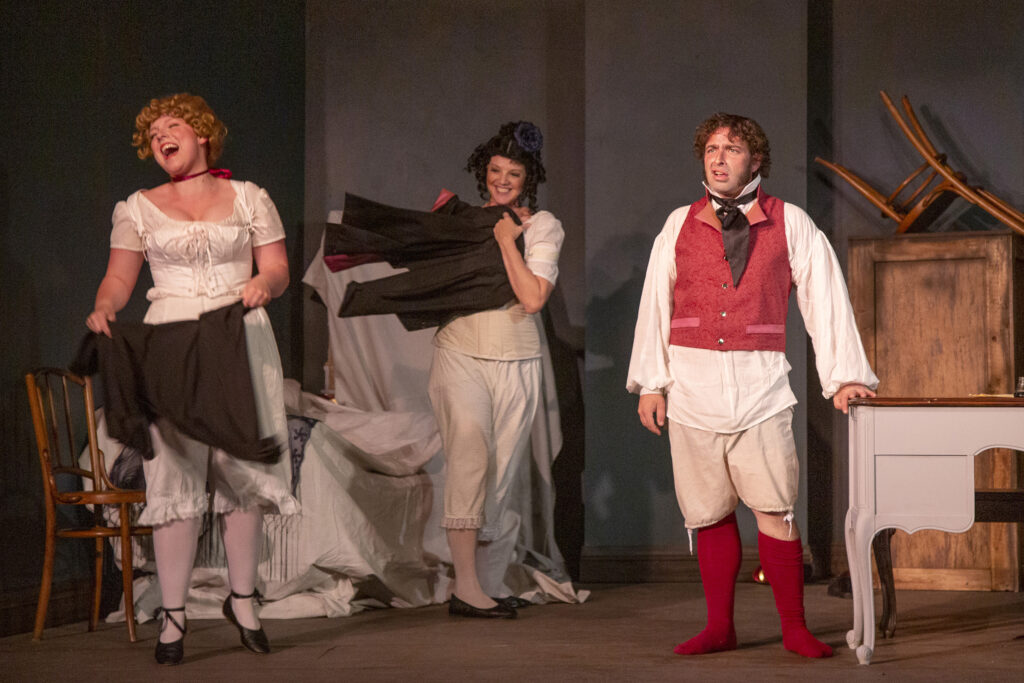
If you are not an operagoer, you are still likely to have heard of Rossini, who composed 39 operas, in addition to some chamber music, sacred music and piano pieces. His “The Barber of Seville” was a major success and his overture is legendary in his final piece, “William Tell.”
If you’re familiar with his work and life, you’ll understand the timelines and how impactful his creations were – among his accomplishments, he is credited with establishing the bel canto style of singing, using unusual rhythms, and effectively inserting crescendos. After he gained fame for his comic approach, he turned to more serious, dramatic fare, and those tones are reflected in the two acts.
“Finale” focuses on the popular Jack’s chaotic approach to deadlines, for as brilliant as Rossini was, he was notoriously lazy and insouciant. In the first act, as portrayed superbly – and pliant — by McWhirter, he’s ambitious and full of vigor, but in the second act, he’s disillusioned and dour, which is quite a departure after the jolly fun of Act I. There is a 15-minute intermission.
Act I is set in 1816 Rome, backstage at an opera, when Rossini was nearly 24 years old. Act II takes place 15 years later, in 1823, in a grand opera house in Paris. This time, at 39, it’s not procrastination troubling him, but how to handle the crossroads in his life. While no one knows for certain why, Rossini never composed another opera, and lived well until age 76. He loved to travel and entertain, and Zelevinsky drops names of his famous contemporaries and places he frequented to give us a sense of his place in history.
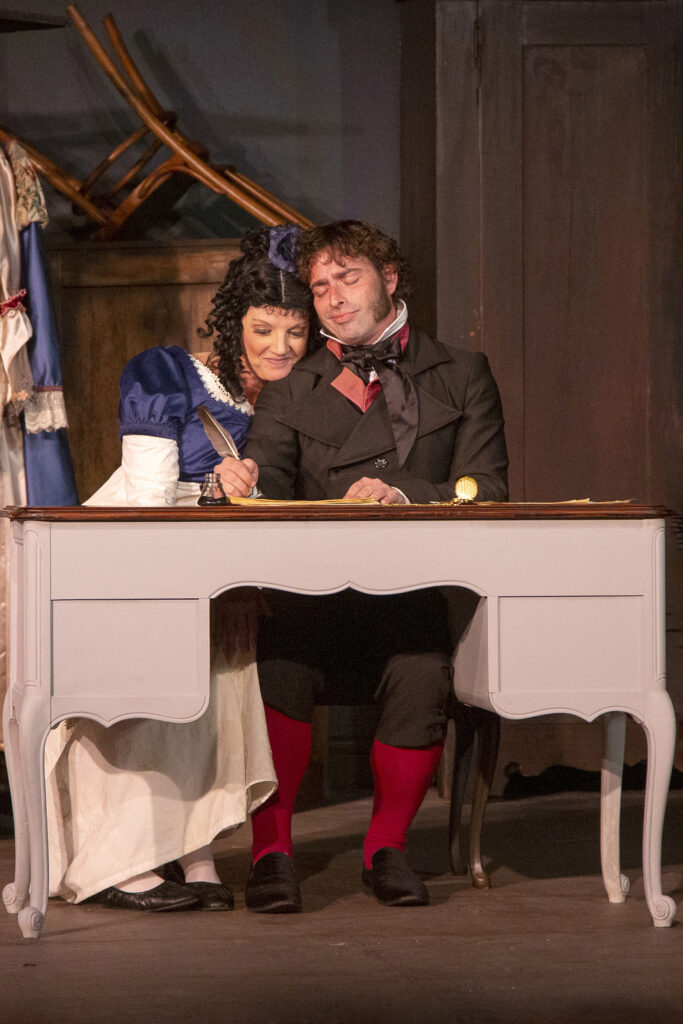
The second act’s noticeable shift of tone is a jolt but is based on the knowledge that Rossini ceased composing operas, which is puzzling to comprehend.
With Zelevinsky’s keen wit and penchant for detail, the spirited cast enlivens the first act much like a vintage screwball comedy. Their verbal dexterity and crisp comic timing make the snappy repartee a delight.
After all, his comic operas were considered farcical fun, for his sitcom-like plots took lively twists and turns, and Callahan, an opera afficionado, mimics those wacky antics in crafting the physical comedy onstage and keeping the pace of the sprightly banter.
McWhirter’s hilarious nonchalance about writing pages so close to opening is contrasted by Anderson’s palpable exasperation over that unruffled demeanor.
In the second act, the supportive Barbaia has learned how to handle the prima donna, Bella is pragmatic about their marriage after distance separated them, and all the characters convey a more serious approach.
One of the show’s highlights is Dean showcasing her strong vocals, for she is an accomplished singer. Last summer, she played Desiree in Stray Dog Theatre’s “A Little Night Music.”
That’s an appreciated addition, for a show about music should give us a sample, at least.
Adding to the ambiance is scenic designer Ken Clark’s versions of two different houses hosting Rossini’s operas – one less opulent in Rome and the other more lavish in Paris. He has astutely serviced the action with furniture placement. Marjorie Williamson contributed graphic and scenic art.
Proficient costume designer Tracey Newcomb outfits the quartet in authentic-looking period pieces, with the women cavorting in petticoats for a good stretch, and lovely bright-colored gowns indicating stature.
Nathan Schroeder’s lighting design and Chuck Lavazzi’s sound design expertly provide smooth transitions for an effective overall production, with special mention to music advisor Caetlyn Van Buren.
Despite the abrupt change of moods between the first and second acts, the capable ensemble is pitch-perfect in depicting their characters. It’s often difficult to explore the inner workings of writers in a narrative, because the process is so internal, but Zelevinsky provides a reasonable backstory with good humor and interesting dialogue for a fitting “Finale.”
The West End Players Guild presents “Finale” April 28-30 and May 4-7, 8 p.m. Thursday through Saturday and 2 p.m. on Sunday at Union Avenue Christian Church, 733 Union Boulevard, St. Louis. For more information, visit www.westendplayers.org
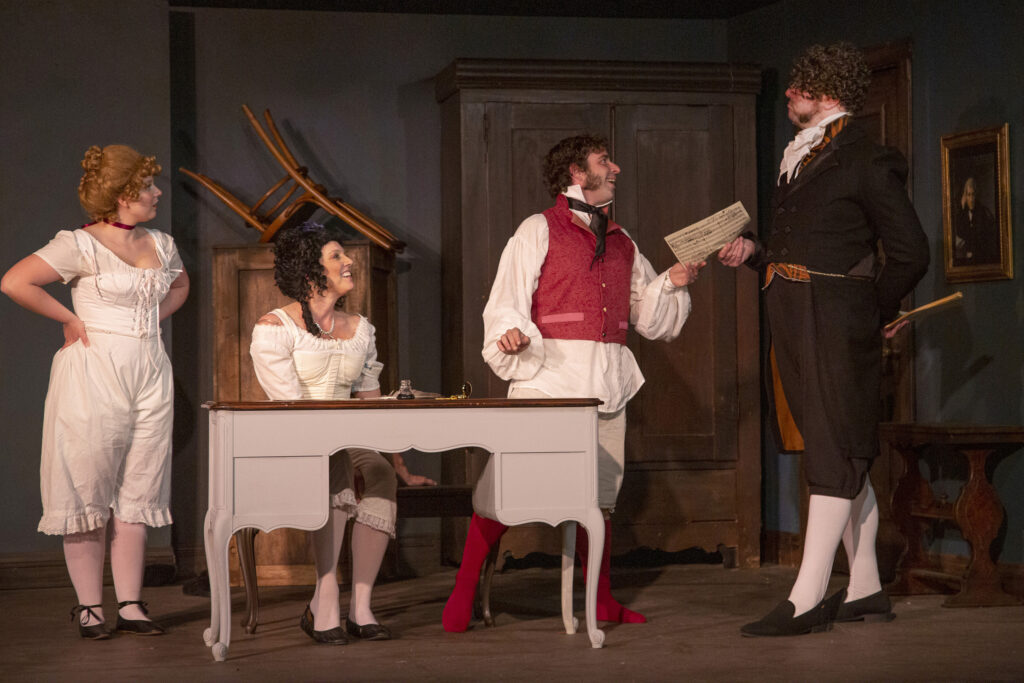

Lynn (Zipfel) Venhaus has had a continuous byline in St. Louis metro region publications since 1978. She writes features and news for Belleville News-Democrat and contributes to St. Louis magazine and other publications.
She is a Rotten Tomatoes-approved film critic, currently reviews films for Webster-Kirkwood Times and KTRS Radio, covers entertainment for PopLifeSTL.com and co-hosts podcast PopLifeSTL.com…Presents.
She is a member of Critics Choice Association, where she serves on the women’s and marketing committees; Alliance of Women Film Journalists; and on the board of the St. Louis Film Critics Association. She is a founding and board member of the St. Louis Theater Circle.
She is retired from teaching journalism/media as an adjunct college instructor.

